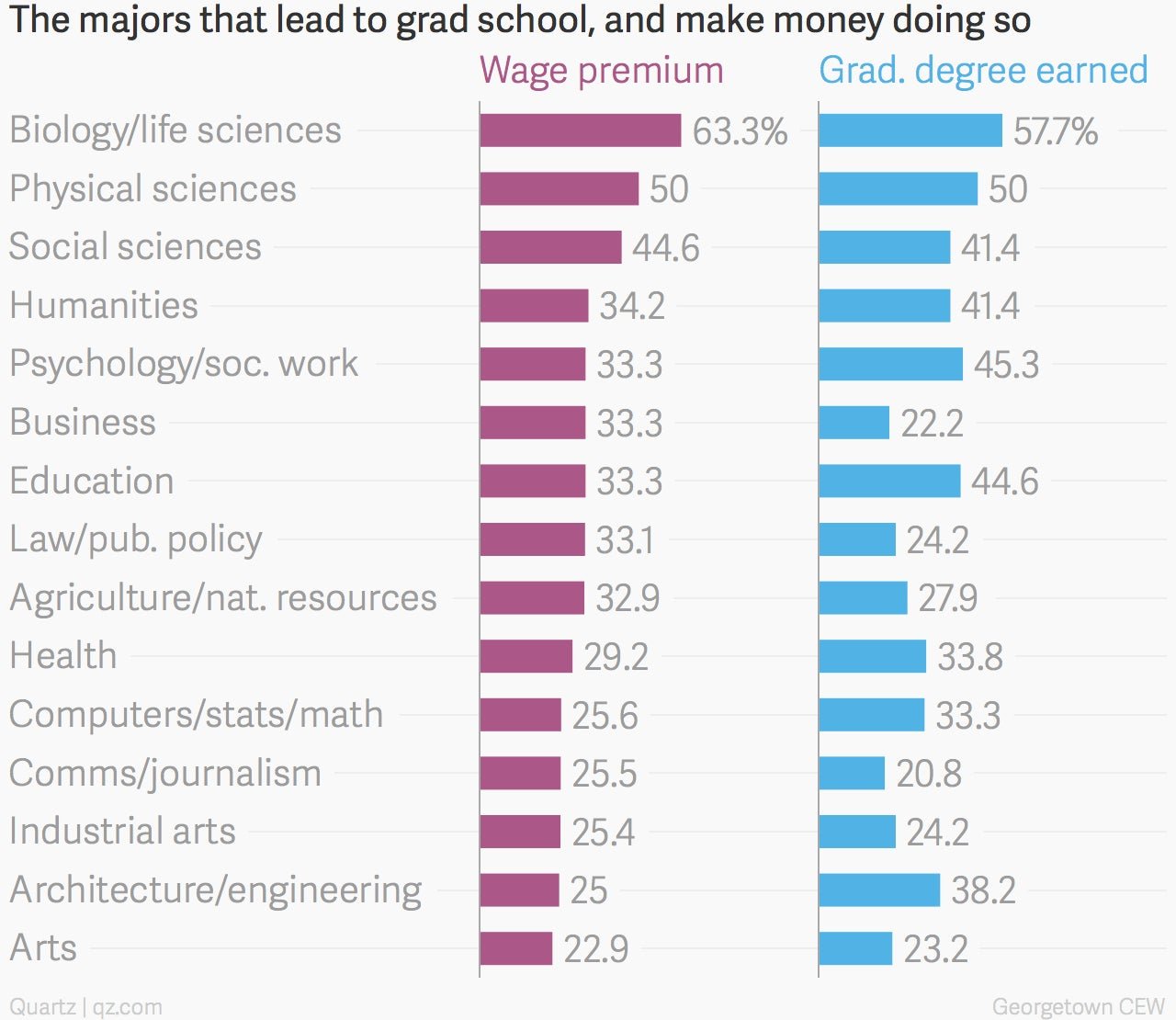All the ways university majors determine your economic future
The most common advice given to students on what to study at university tends to focus on salary and job prospects. One’s choice of major makes a huge difference to future earnings and job security, according to an analysis of census data by Georgetown’s Center on Education and the Workforce.


The most common advice given to students on what to study at university tends to focus on salary and job prospects. One’s choice of major makes a huge difference to future earnings and job security, according to an analysis of census data by Georgetown’s Center on Education and the Workforce.
Yes, engineers and finance students out-earn English majors. But it’s not as simple as that. Business may be one of the highest-paying majors, for example, but subject to a really wide range—graduates on the low end of the salary distribution can make less than an average teacher.
Here’s a breakdown of the many ways that what you study determines your future earnings power, drawing from data on US graduates:
Engineers dominate on salary
A petroleum engineering major, on average, makes $136,000 a year:
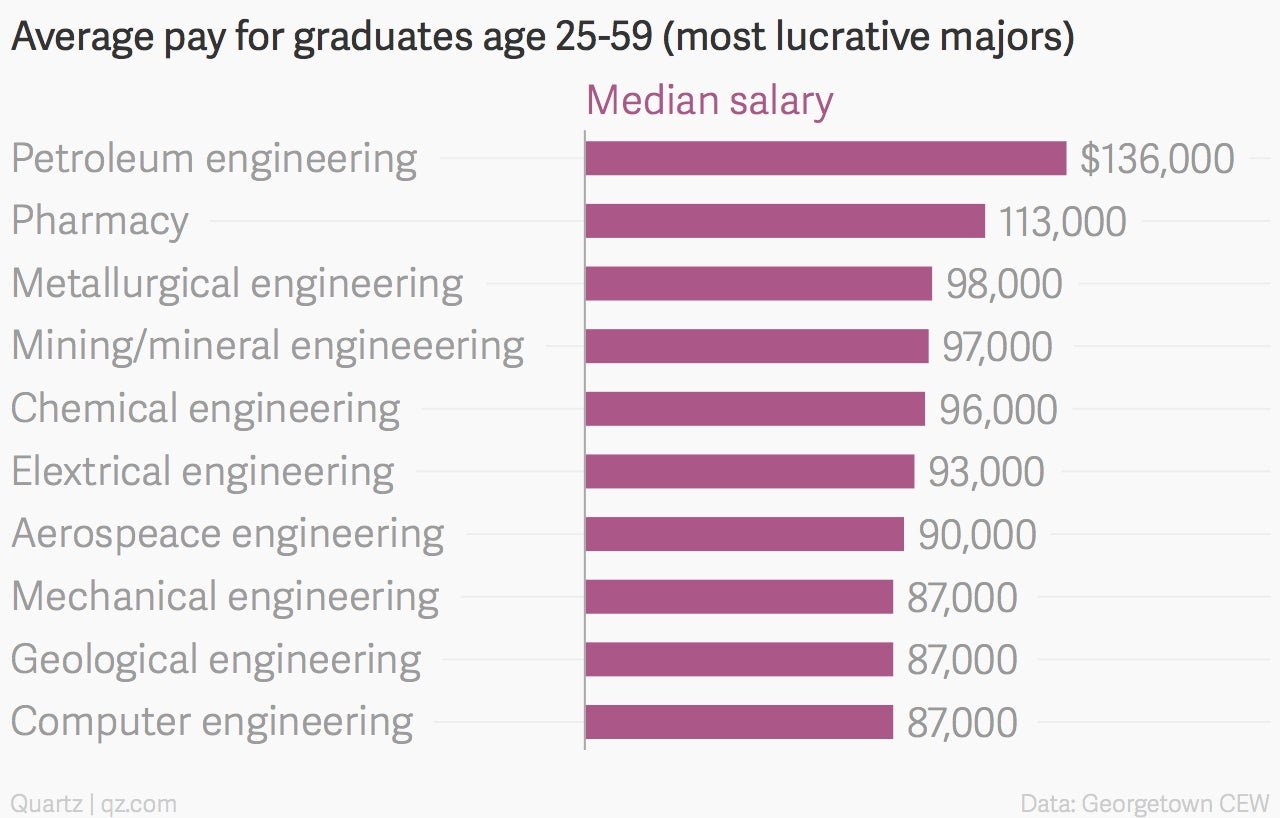
An early-childhood education major, on the other hand, makes just $39,000, on average:
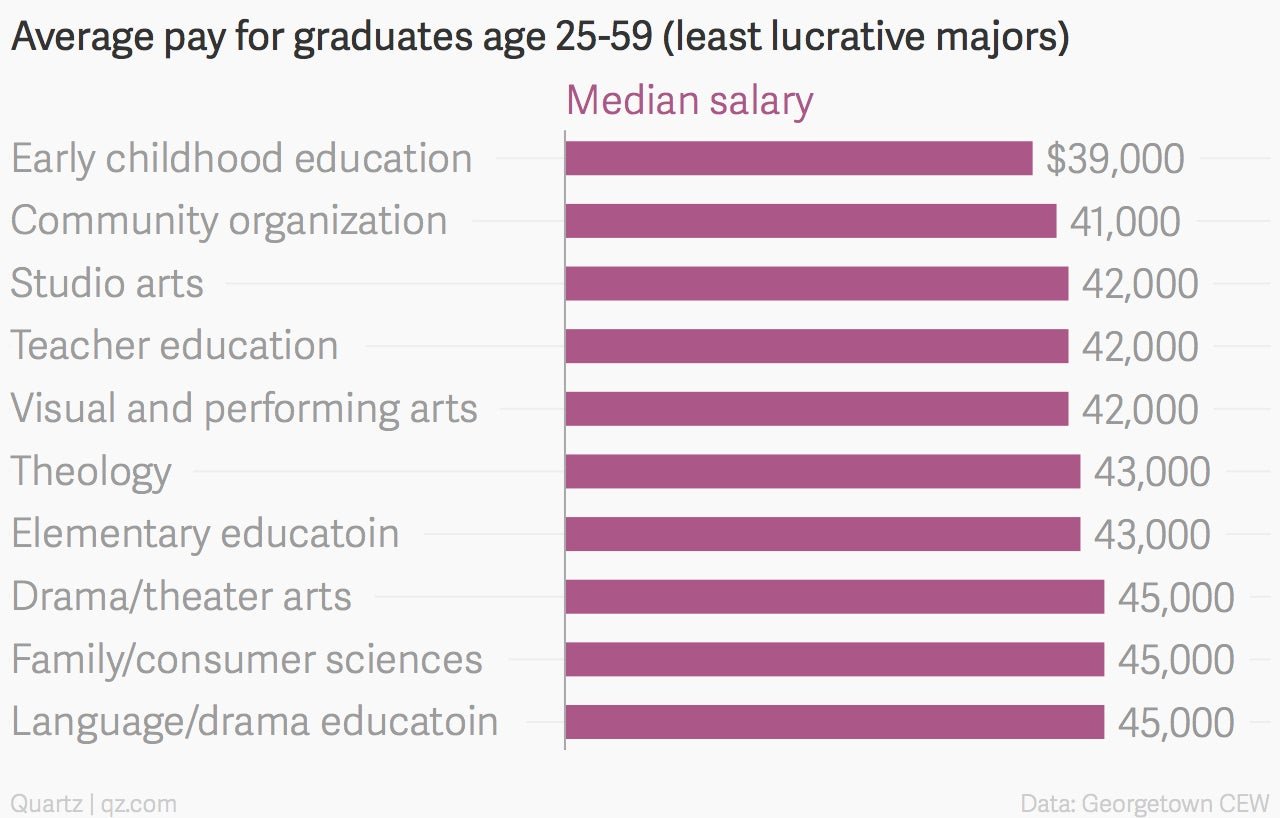
A median is not a destiny
Median salary levels show a pretty stark difference between majors, but it’s important to understand the degree to which earnings vary within a field. The range of salaries in some of the most lucrative fields—engineering or business, for example—is much wider than in lower-paying industries, making above-average social workers better off than a fair few coders or financiers:
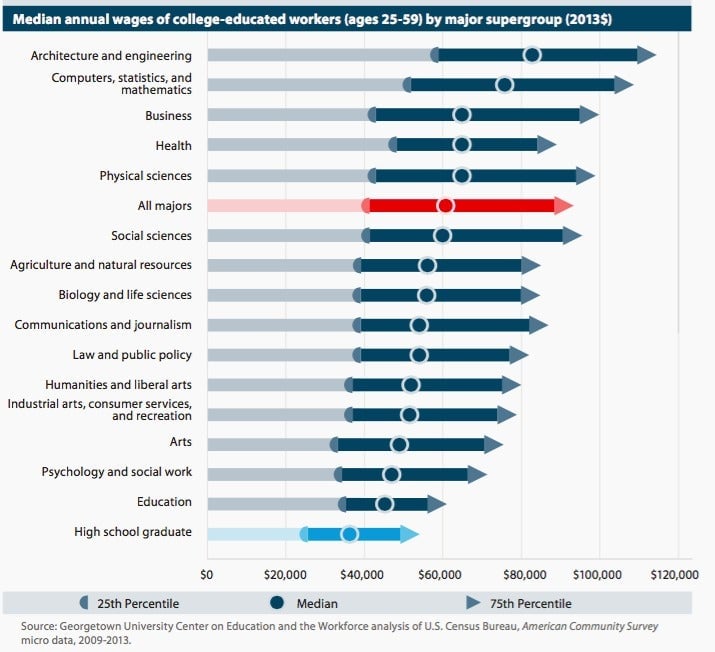
Wage gaps widen over time
Science, technology, engineering, and mathematics (STEM) majors start out making the most money—an average of $60,000 for 25-34 year olds. And their salary grows more quickly over time than every other group as well. Teaching and service-oriented majors in particular see very little wage growth over the course of a graduate’s career:
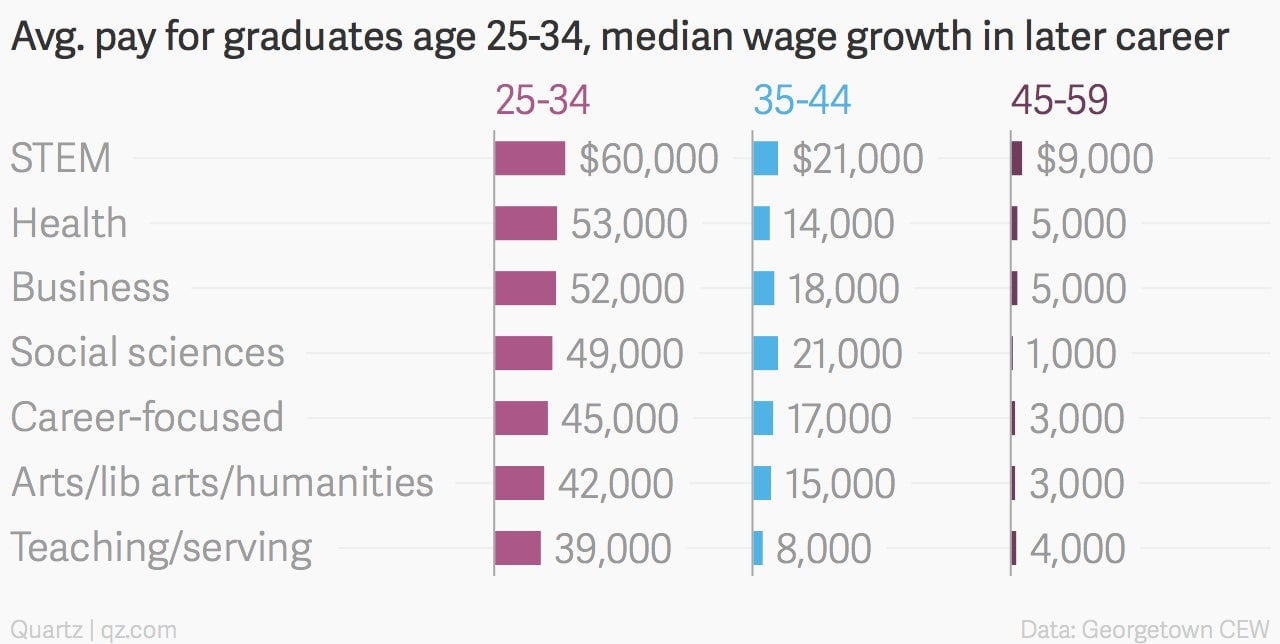
Not all “business” majors are the same
A finance major tends to substantially out-earn somebody who focuses on human resources:
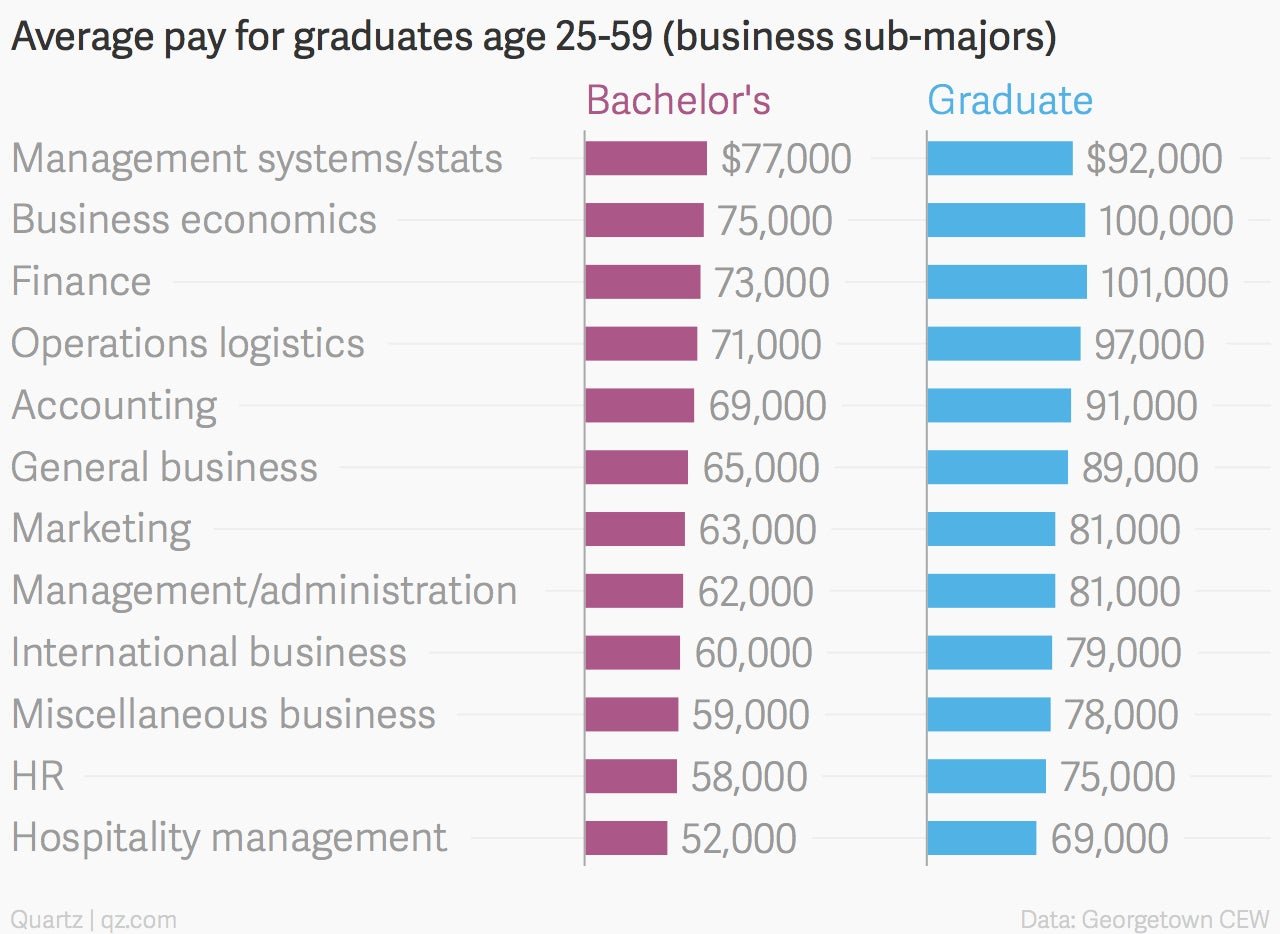
Social science has a very clear hierarchy as well, with economists vastly out-earning anthropologists:
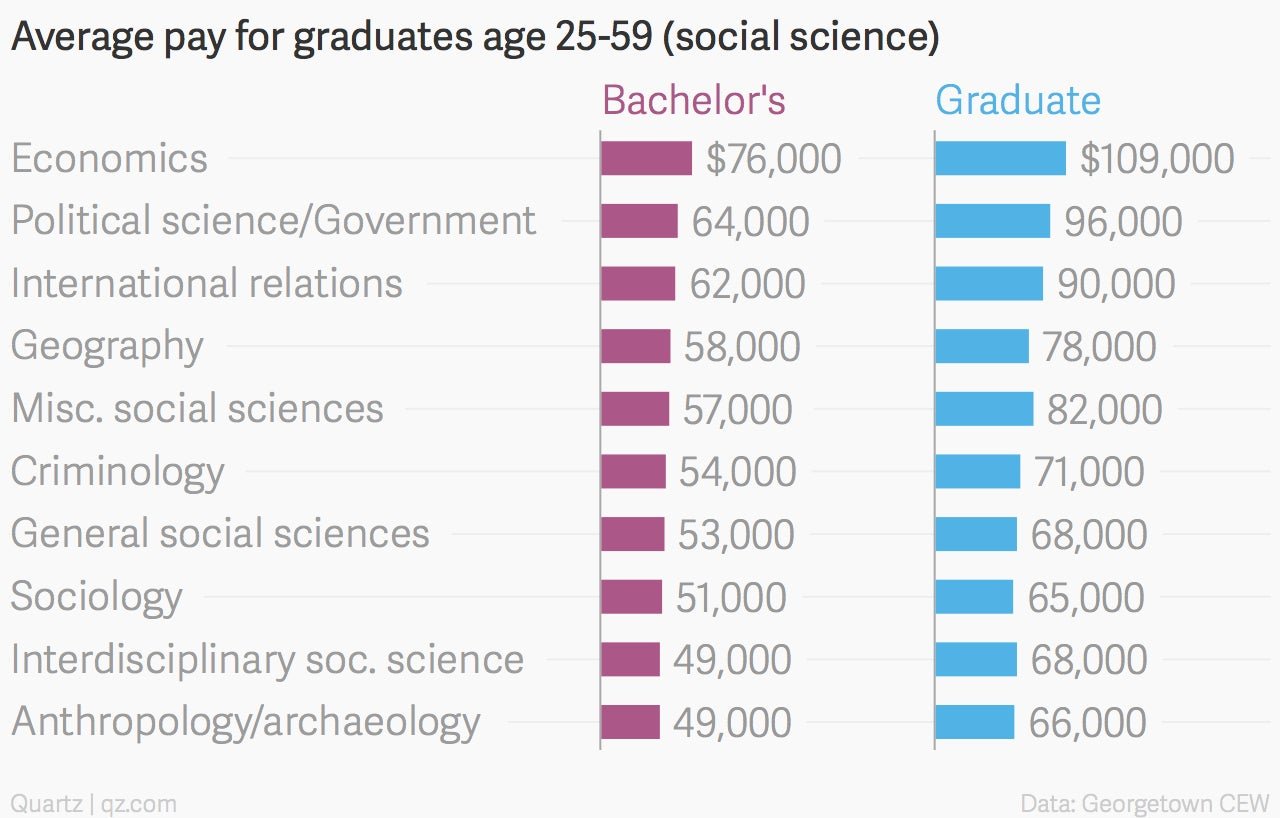
Grad school (sometimes) required
Your major determines how likely you are to go to graduate school, and how much you’re likely to get out of it. More than half of biology and life-science majors go on to get a graduate degree, and they make 63% more than those who don’t. But only around a fifth of journalism and communications majors do, and they get a much more modest bump in salary when they do:
